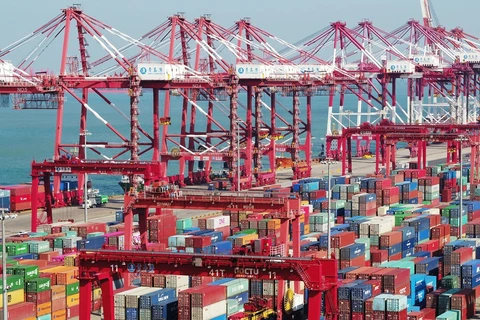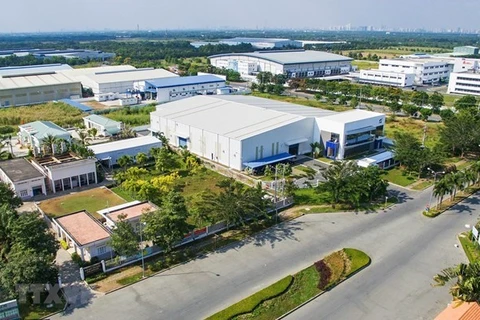 The Central Institute for Economic Management (CIEM) hosts a seminar reviewing the local economy in Hanoi (Photo cafe.vn)
The Central Institute for Economic Management (CIEM) hosts a seminar reviewing the local economy in Hanoi (Photo cafe.vn)
Hanoi (VNA) - The Central Institute for Economic Management (CIEM) said with good results in preventing the pandemic and the chance for economic recovery, Vietnam still needs to be cautious in the second half of the year.
Hosting the seminar ‘Vietnam's economy in the first half of 2020: Enabling regulatory approach for the new normal’ in Hanoi on July 10, CIEM released a report analyzing macro-economic development in January-June and assessing prospects for the entire year.
The report said the national economy was facing serious difficulties as the world economy has been heavily affected by COVID-19, adding the local GDP growth rate decreased to 1.81 percent in the first half, the lowest in the past 12 years but still a high level compared to other countries in the region.
Declines in growth were seen in most economic sectors, including the agriculture-forestry-fishery sector, construction and business.
The business sector faced many difficulties due to the direct impact of the pandemic, significantly affecting employment. According to the General Statistics Office, by mid-April 2020, nearly 5 million workers were affected by the pandemic, overall unemployment increased to 2.73 percent in the second quarter.
The average inflation in the first six months of the year reached 4.19 percent due to the rise in prices of essential commodities.
Nguyen Anh Duong, head of CIEM's Macroeconomic Policy Department, said governments of many countries including Vietnam have enacted new supportive measures to deal with the pandemic and are not yet able to recognise and assess the impacts fully.
Duong presented scenarios for Vietnam's economy in 2020. In the first scenario, the economic growth may reach 2.1 percent, exports for the whole year were forecast to decrease 3.1 percent while the trade surplus would be 1.7 billion USD and the average inflation would be 4.3 percent.
He also mentioned the second scenario in which economic growth would be 2.6 percent with better statistics.
The CIEM’s official forecast for Vietnam's economic development in the last six months of 2020 said it might be affected by a number of key factors, such as an uncertain world economy, especially the possibility of a second outbreak of the virus.
Many economies have been implementing large-scale support packages which could pose significant risks to the world financial market and global debt situation. In addition, trade tensions among major economies could be more complicated.
At the same time, Duong said with high expectations of the positive impact of the EVFTA, Vietnam could face trade-defence lawsuits and investigations against tax avoidance and origin fraud in some markets.
CIEM emphasised the country should focus on improving the microeconomic foundation and renovating the economic institutional system towards improving the resilience of the economy in the ‘new normal’./.
























